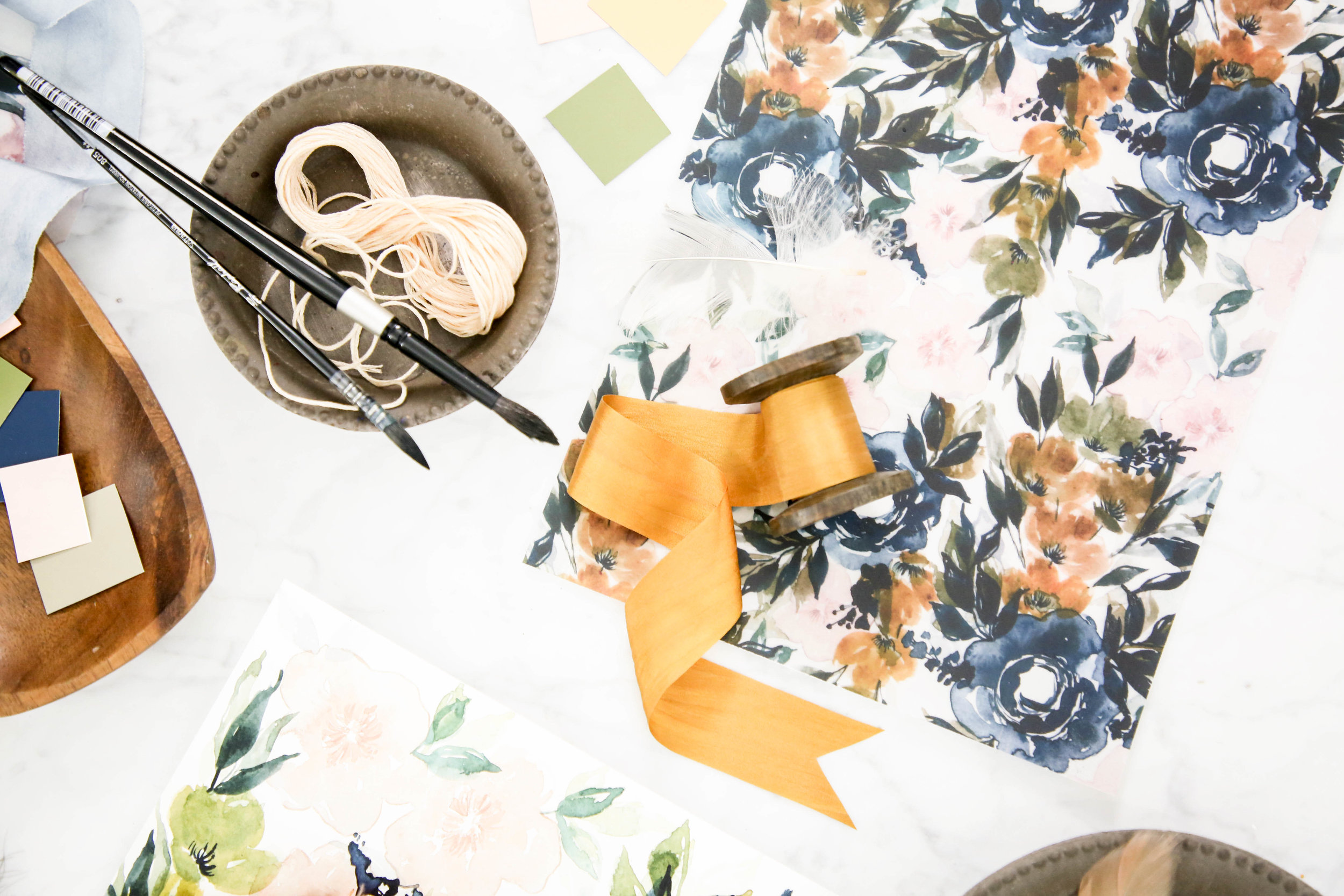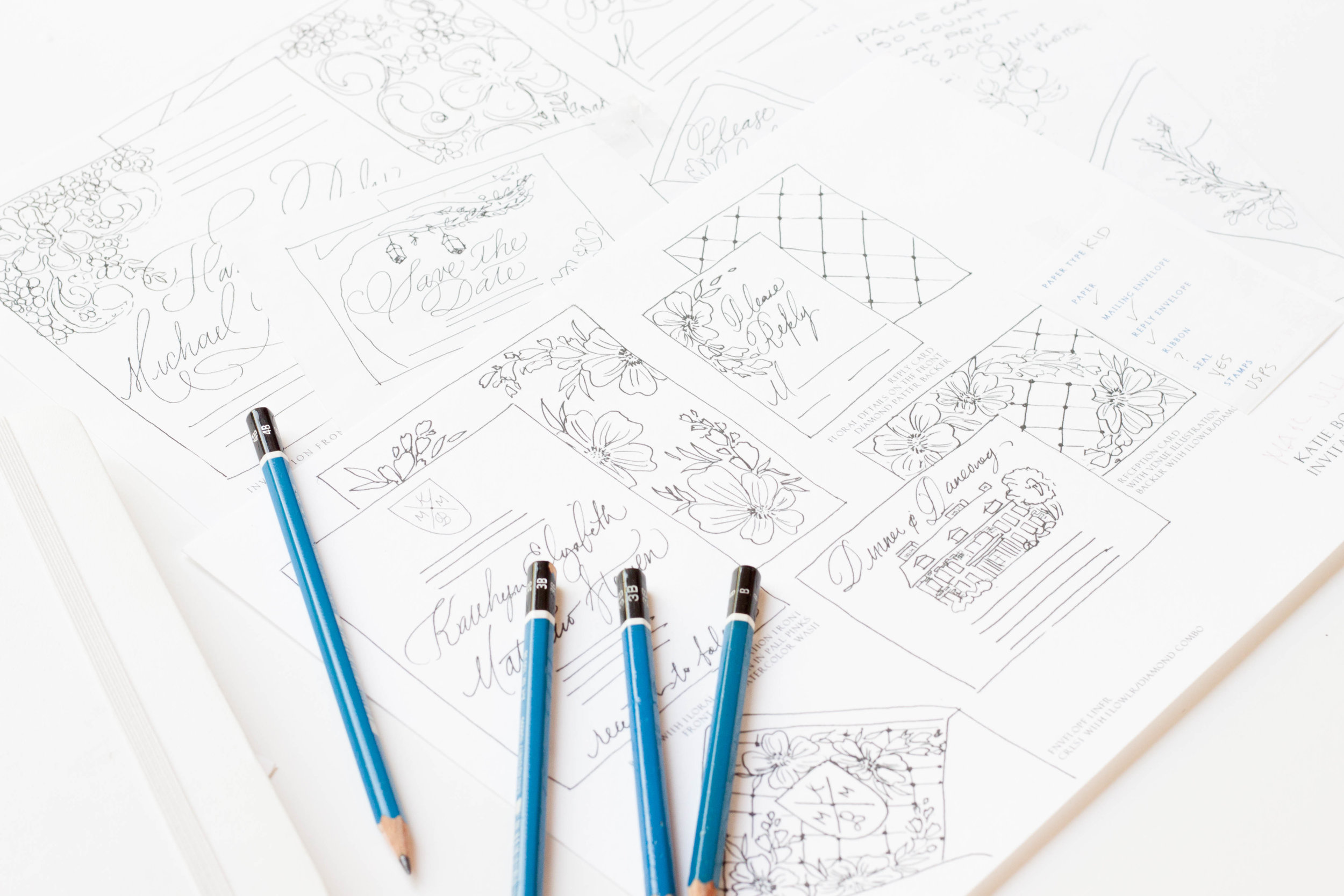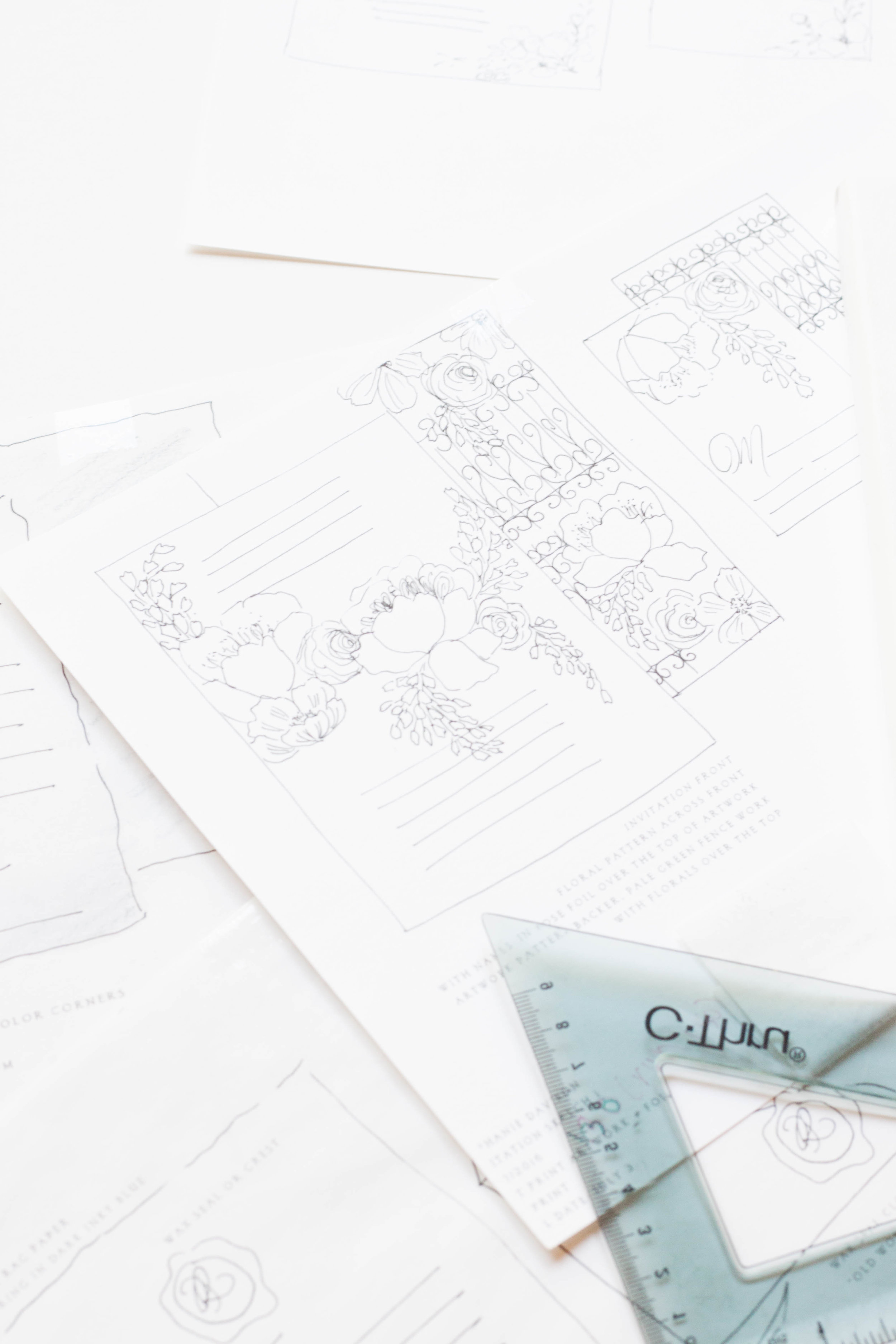Something interesting happened the other day. One of our students had posted a question on a facebook board she and I are both member of, and her question was similar to this:
Any Type A perfectionists out there? Who is so OCD that you have a really difficult time finishing a project? I do a project, I'm unhappy with it, so I'll do it over and over and still end up hating it. I've spent a ton of time, money and trouble stressing over wether or not I should even proceed with this as a business. Does anyone else struggle with this? How long did it take you to gain the confidence to know your work is up to par with your pricing? (paraphrased)
As creatives, we've all struggled with this. We like to have control, we aim for perfection, and strive for excellence in everything we do. Her question was absolutely relevant, but what was interesting was peoples responses (there were a lot of really wonderful responses as well).
People jumped on the bandwagon of proud. Proud to be so anal retentive that they never are happy with a project and will redo it 10 times. Proud that it takes them 5x as long as it should because they see a tiny mistake. Proud that they won't relinquish control, won't alter their process, and won't settle for less than perfect.
Sound familiar?
In my opinion, this is the dividing line between running a business and running a hobby: understanding the value of your time. When running a business, we have to understand that done is better than perfect.
I know the thought of turning over an non-perfect project to a client is unbelievable; how could you possible charge money for something that isn't perfect?? Oh the horror! It's easy, and that's how we are able to make money.
First, let's look at that illusive word: perfect. How do you define perfect? Without smudges? That you completed it at all? Or are you comparing your level of work to the other artists that you stalk on instagram who have a decade of experience behind them and striving for their level of perfection? Are you comparing yourself to someone's work who has more followers that you, more work than you and more clients? That's not how we define perfect.
As artists, we have to define perfection closer to the definition of completion. We know we prepared ourselves for the project well, that we gave it that time we had available, it meets the clients expectations and that we did our best under the circumstances we found ourselves in.
We don't have all the time in the world. There is a concept that we're going to be discussing further in next semesters Time Management course: every decision we make is a sacrifice. Meaning, every single choice we make in our daily lives is a sacrifice of something else we could be accomplishing. When we redo work over and over, we're choosing to sacrifice the time we would otherwise have to: complete other projects, start a new fictitious project for our portfolio, create something for the holidays, educate ourselves, read a book, cook dinner, prepare the week's menu, run errands, spend time with our husbands and kids, etc. and most importantly, to work on other client work. In addition to that sacrifice, we're also driving ourselves mad. In the end, we find ourselves frustrated, tired, and with no more time.
This is where that dividing line comes in. Someone running a business knows they need to keep moving, because one client project overrunning it's time pushes off another client's project, and so and and so forth. You can't get paid if you can't finish work in a reasonable amount of time.
Your time also has a price tag on it. Say you're billing $100 for a custom project. The cost of materials is $10 in non-reusable (like paper). It should take you two hours to layout the project and complete it, so on that project, you're billing a bit shy of $50/hour. But instead, you take two days to do it, totaling 10 hours and you've gone through 4x as much paper. Once you take that initial $100 and take out the cost of all the wasted paper (100-40=60) and then divide that number by the hours it took (60/10) you're making $6 an hour. You'd do better working at Starbucks.
When we're running a business, we understand that our time is the most valuable thing we have and it's definitely NOT worth $6/hour. Understanding this idea makes it much easier to step away from a project and know when done is better than perfect.
Here are some ways to break out of this mentality:
Prepare yourself for your project: I wrote the above quote twice (well, kinda. the first try I only got through one word). I wrote it twice because I didn't do this step. I didn't prepare myself for the project. Preparation saves us a ton of time redoing something. Warm up your hand, layout your project in pencil, do a sketch, etc. know what you're going to do before you do it. Don't just expect to create something earth shattering by putting pen to paper and expecting magic to come shooting out the end of your pen. I mean, I could have spent more time editing the calligraphy above as well. The p and f are a bit shaking, but I didn't have the time in my day to spend 30+ minutes editing something that I know you wouldn't notice unless I pointed it out and isn't for a paying client.
Never throw things away: If you don't like something, don't toss it. I first heard of this idea in an art class (and someone mentioned it on this facebook conversation as well) that the best art someone creates is very often in the trash. A little perspective and time very often changes how we view a project.
Finish it: if you don't like it half way through, finish it anyway. Just keep going. I do this with watercolor quite often, and if you follow me on periscope, you've seen me do this. I'll be working on something, not happy with where it's going, but push through anyhow. It challenges me to narrow down what exactly I don't like and then correct it. For me, it's very often a color balance thing, and by continuing to work on it, it allows me the time to grow the depth of the art and color and bring in the balance I want to see. I've learned that I prefer a look of layers, lots of pale, some medium and then some super dark on top. Without finishing pieces I didn't like, I wouldn't know this.
Challenge yourself: do a 60 second sketching challenge, or three minute writing challenge. Time yourself, give yourself a limit and complete a series of 10 things in one or three minute intervals. Learn to work quickly and efficiently and then move on to the next item.
Walk away: walking away from a project is often the best thing we can do. Leave it over night. I still do this - you walk away, come back later and your project magically looks WAY better than it did a few hours ago.
Have an accountability partner: some of the concern we generate is wether or not something is actually good enough to be selling. Having an accountability partner is a great way of testing this - have someone else who has a great creative eye, even better if they're in the same industry, and it MUST be someone you trust. Use this person to gauge your work and you theirs. If something you do really does need to be worked on a bit more, trust them to tell you (and you to tell them). If they tell you it's amazing and stop messing with it, you MUST trust their judgement.
Understanding and embracing this idea is incredibly liberating and satisfying, and hopefully this brings you just a small step closer to accomplishing it.







